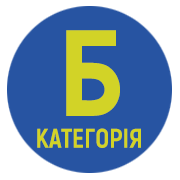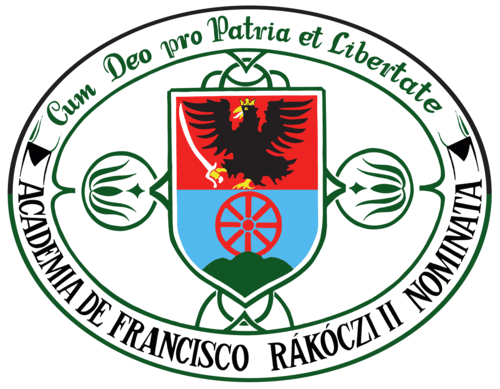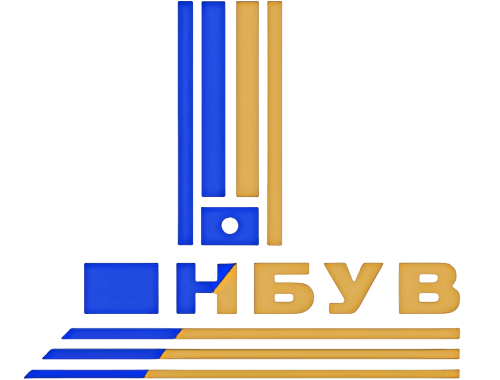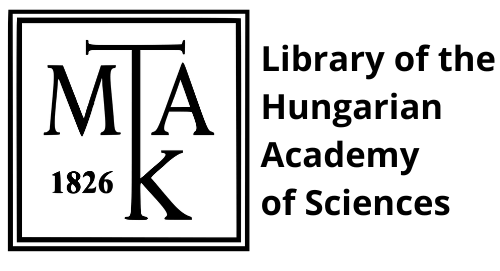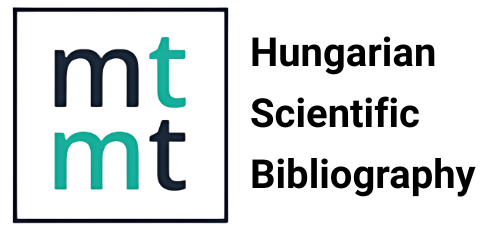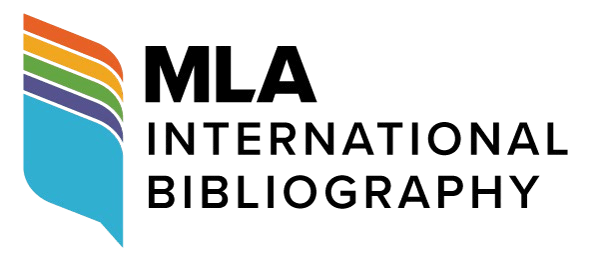The poet of the Lowland in Transcarpathia Thoughts regarding the Petőfi’ commemorative year
DOI:
https://doi.org/10.58423/2786-6726/2023-2-188-209Keywords:
Petőfi, literature, reception, poetry, road noteAbstract
The Hungarian government has declared 2022 and 2023 to be Petőfi commemorative years. The 200th anniversary of the poet’s birth offers an opportunity for 20th-century men to reconsider, interpret, and evaluate the events of the poet's era.
Exhibitions, competitions, performances, artistic contests, etc. announced on the occasion of the jubilee, create a good opportunity for the poet's spirituality to come into the consciousness of the communities in a modern guise.
Sándor Petőfi appears on many platforms. Primarily, the 2023 issues of literary magazines tried to present the widest possible picture of Petőfi to the reader. The published writings, articles, studies, revolve around the poet's oeuvre, providing analysis attempts in different light. Sándor Petőfi is always at the center of Hungarian literature. Writers and literary historians touch upon his oeuvre again and again and reinterpret Petőfi’s work and life.
The great poet of the Hungarian nation can also be linked to Transcarpathia. In 1847, he traveled to Erdőd to visit his bride, and in the meantime, he also visited our region. During the trip, he took every opportunity to indulge in his love of nature. He also visited four Transcarpathian settlements. We can read about his journeys, including the settlements in our region, in Szabolcs Osztovits' book. He visited Ungvár, Munkács, Beregszász and Badalo. He documented what he saw and experienced. Posterity can obtain information about these roads mainly from his letters and travel maps. Based on his travel notes, we examine and present the poet's journey in our region.
Sándor Petőfi plays a significant role not only in literature but also in the heart of the community. His place in literature is to be among the best of all. For posterity, he is remembered as a young and revolutionary poet. It is important to mention that his name is known not only by Hungarian communities. The outstanding figure of our literature can also be found in Ruthenian and Ukrainian literature.
With this work, we do not aim to present and summarize the new scientific results to the Reader in its entirety. It would be an impossible undertaking. With this study, I would like to commemorate our poet in connection with the Petőfi jubilee, emphasizing his connection to our region.
References
Csanádi György, 2001. Régi Beregszásziak. [Old Beregszaszians]. Beregszász (In Hungarian)
Debreceni Anikó, 2014. Integrált irodalom (magyar és világirodalom). Tankönyv az általános oktatási rendszerű tanintézetek 6. osztálya számára. [Integrated literature. Hungarian and world literature. School book for the 6thgrade of the educational institutions with a general education system] Lemberg: Szvit Kiadó. (In Hungarian)
Debreceni Anikó, 2016. Integrált irodalom (magyar és világirodalom). Tankönyv az általános oktatási rendszerű tanintézetek 8. osztálya számára. [Integrated literature. Hungarian and world literature. School book for the 8th grade of the educational institutions with a general education system] Lemberg: Szvit Kiadó. (In Hungarian)
Debreceni Anikó, 2018a. Integrált irodalom (magyar és világirodalom). 5. osztály. Tankönyv az általános középfokú oktatási intézmények számára. Második, az érvényes magyar nyelvű tantervnek megfelelően átdolgozott kiadás. [Integrated literature. Hungarian and world literature. 5th grade. Textbook for general secondary education institutions. Second edition] Lemberg: Szvit Kiadó. (In Hungarian)
Debreceni Anikó, 2018b. Magyar irodalom (szakosított szint). Tankönyv a magyar oktatási nyelvű általános középfokú tanintézetek 10. osztálya számára. [Hungarian literature. Specialized level. Textbook for the 10th grade of Hungarian general secondary educational institutes] Lemberg: Szvit Kiadó. (In Hungarian)
Együtt (A Magyar Írószövetség Kárpátaljai Írócsoportjának folyóirata) [„Együtt” Literary magazine] 2023/2. (In Hungarian)
Fried István, Szappanos Balázs, 1999. Petőfi-versek elemzése. [Analysis of Petőfi poems] Nyíregyháza: White Kiadó. (In Hungarian)
Gortvay Erzsébet, 2004. Emlékezni szükséges. Esszék, emlékezések, jegyzetek. [Remember is necessary]. Kárpátaljai Magyar Könyvek 127. (Transkarpathian Hungarian Books, 127.) Ungvár: Intermix Kiadó. (In Hungarian)
Horváth János, 1926. Petőfi Sándor. (Második kiadás) [Sándor Petőfi] Budapest: Pallas Irodalmi és Nyomdai R. T. (In Hungarian)
H. Törő Györgyi, 1964. Illyés Gyula: Petőfi Sándor. [Gyula Illyés: Sándor Petőfi] In: Irodalomtörténeti Közlemények. [Literary Announcements] 1964. 68. évf. 2. füzet 244-247.
Illyés Gyula, 2002. Petőfi Sándor. [Sándor Petőfi] Budapest: Kortárs Kiadó (In Hungarian)
Irodalmi Magazin. [Periodical literary magazine] 2023/1. XL. (In Hungarian)
Jelenkor. [„Jelenkor” Periodical literary magazine] 2023. szeptember. (In Hungarian)
Kerényi Ferenc, 1998. Petőfi Sándor élete és kora 1823-1849. [Life and Age of Sándor Petőfi] Budapest: Unikornis Kiadó. (In Hungarian)
Kerényi Ferenc, 2008. Petőfi Sándor élete és költészete. [Life and Poetry of Sándor Petőfi] Budapest: Osiris Kiadó. (In Hungarian)
Keresztyén Balázs, 1993. Irodalmi barangolások a Kárpátok alján. [Literary wanderings at the foot of the Carpathians] Ungvár – Budapest: Intermix Kiadó. (In Hungarian)
Margócsy István, 2011. Petőfi-kísérletek. Tanulmányok Petőfi Sándor életművéről. [Petőfi-experiments. Studies of the works of Petőfi] Pozsony: Kalligram Kiadó. (In Hungarian)
Medve Anna, Medve Zoltán, 1998. Jurij Kacsij Petőfi-fordításai. [Translations of Jurij Kacsij] In: Hungaro-Ruthenica I. 143–153. Szeged. (In Hungarian)
Medve Zoltán, 1979. A Petőfi-tolmácsolás úttörői. [Forerunners of the Petőfi interpretation] In: Kalendárium '80. [Calendar ‘80] Ungvár. (In Hungarian)
Medve Zoltán, 2005. Az Alföld poétája a zordon Kárpátokban. Petőfi Sándor kárpátaljai és galíciai recepciója. [The poet of the Lowlands in the Carpathians. Transcarpathians and Galician reception of Sándor Petőfi] Studia Ukrainica et Rusinica Nyiregyhaziensia 14. Nyíregyháza. (In Hungarian)
Medve Zoltán, 2005. Petőfi a ruszin nép nyelvén: Petőfi Sándor kárpátaljai ruszin fordításainak antológiája. [Petőfi in the language of Ruthenians: Anthology of Transcarpathian Ruthenian translations of Sándor Petőfi] Nyíregyházi Főiskola Ukrán és Ruszin Filológiai Tanszéke. (In Hungarian)
Nemeskürty István, 1993. A magyar irodalom története 1000-1945. Első kötet. [The History of Hungarian Literature 1000-1945. First publication] Budapest: Akadémiai Kiadó. (In Hungarian)
Osztovits Szabolcs, 2022. „Sors, nyiss nekem tért” Petőfi Sándor életének krónikája. [„Fate, make way for me” Chronicle of the life of Sándor Petőfi] Budapest: Osiris Kiadó. (In Hungarian)
Petőfi Sándor, 1987. Útirajzok. [Travelogue] Helikon Kiadó. (In Hungarian)
PetőfiLátó 200. [„Látó” Literary magazine] 2023. január. (In Hungarian)
Pilinszky János, 1999. Levél Petőfi Sándorhoz. [Letter to Sándor Petőfi] In: Hafner Zoltán (szerk.) Publicisztikai írások. [Journalistic studies]Budapest: Osiris. (In Hungarian)
Raffay Sándor: Petőfi lelke. [The soul of Petőfi] In: Császár Elemér és Ferenczi Zoltán (szerk.) Petőfi-Könyv. [Petőfi-Book] Budapest. A Petőfi Társaság kiadása. (In Hungarian)
Révai József, 1960. Válogatott irodalmi tanulmányok. [Selected literary studies] Budapest: Kossuth Kiadó. (In Hungarian)
S. Benedek András, 2005. Feledhető-e a sorsközösség (recenzió). [Is it forgettable the community of destiny] In: Együtt 2005/1. VII. évfolyam. [Együtt, VII. year] (In Hungarian)
S. Varga Pál: Verstípus és stílustörténet: a magyar tájlíra három változata (Keszthely, Az Alföld, Nádas tavon). [Poem type and stylistic history: three versions of Hungarian landscape poetry (Keszthely, Az Alföld, Nádas Tavon)] In: Studia Litteraria irodalom- és kultúratudományi folyóirat [Journal if literature and culture studies] LVIII. évfolyam 2019/3–4. 120–139. (In Hungarian)
Szépirodalmi Figyelő. [Literary magazine] 2023/1. (In Hungarian)
Tamás Attila, 1989. Illyés Gyula. [Gyula Illyés] Akadémiai Kiadó. (In Hungarian)
Udvari István (szerk.), 2005. Medve Zoltán: Petőfi a ruszin nép nyelvén. Petőfi Sándor kárpátaljai ruszin fordításainak antológiája. [Zoltán Medve: Petőfi on the language of the Ruthenian people. Anthology of Transcarpathian Ruthenian translations of Sándor Petőfi] Nyíregyháza: Nyíregyházi Főiskola. (In Hungarian)
Vaderna Gábor, 2023. Média, marketing, poétika. Petőfi Sándor: Költő lenni vagy nem lenni. [Media, marketing, poetics. Sándor Petőfi: To be a poet or not to be] In: Szépirodalmi figyelő 2023/1, 24–35. (In Hungarian)
Vajda János, 1895. Petőfi napja. [The day of Petőfi] In: Vasárnapi újság. [Sunday Newspaper] 162–163. 42. évfolyam. 11. szám. (In Hungarian)
Vári Fábián László, 2023. Petőfi Győrbe készül. [Petőfi is preparing to Győr] In: Együtt 2023/2. (In Hungarian)
Virág Teréz, 2001. Petőfi költészetének elemzése a budapesti iskola szellemében. [Analysis of Petőfi's poetry in the spirit of the Budapest school] In: Fordulópont, 11. 100- 110. (In Hungarian)
Zoltán András, 2004. Petőfi a kárpátaljai ruszinoknál és a galíciai ukránoknál. [Petőfi among the Transcarpathian Ruthenians and Galician Ukrainians] In: Kisebbségkutatás. 13. évfolyam. 4. szám. (Minority research) (In Hungarian)
Zubánics László, 2011. Tájba írt történelem. Kultúrtörténeti időutazás Kárpátalja legmagyarabb városában és vonzáskörzetében. Archív felvételekkel. [History written in landscape. Cultural-historical time travel in the most Hungarian city of Transcarpathia. With archive photos] Ungvár – Budapest: Intermix Kiadó. (In Hungarian)
URL1: Jánossy Lajos, 2023. Markó Béla: Ketten beszélünk, én és a forma. [Béla Markó: We are two talking: me and the form] In: Litera (https://litera.hu/magazin/-interju/marko-bela-ketten-beszelunk-en-es-a-forma.html) (Leöltés ideje: 2023. 10. 05.)
URL2. Kiss Endre József: Petőfi irodalmi recepciójának kezdeteiről. [Endre József Kiss: About the beginning of Petőfi’s reception] (https://¬www.¬kortarsmuveszet.com/¬kiss-endre-jozsef-petofi-irodalmi-recepciojanak-kezdeteirol.html) (Letöltés ideje: 2023. 10. 26.)
URL3: Jókai Mór összes művei: Petőfi Sándor élete és költeményei. [Jókai’s works: Life and poetry of Sándor Petőfi] (https://www.arcanum.com/hu/online-kiadvanyok/Jokai-jokai-mor-osszes-muvei-1/iroi-arckepek-10FD7/petofi-11308/petofi-sandor-elete-es-koltemenyei-11309/) (Letöltés ideje: 2023. 10. 28.)
URL4: Antalovics Péter: Petőfiről másként – 200 éve született Petőfi Sándor (14.) [Péter Antalovics: About Petőfi in a different way –Petőfi was born 200 years ago] https://www.vm4k.org.rs/pet%C5%91fir%C5%91l-m%C3%A1sk%C3%A9nt-%E2%80%93-200-%C3%A9ve-sz%C3%BCletett-pet%C5%91fi-s%C3%A1ndor-14 (Letöltés ideje: 2023. 10. 28.)
URL5: Kárpátalja.ma: Ismét megrongálták Petőfi szobrát Ungváron [Petőfi's statue in Ungvár was damaged again] https://karpatalja.ma/karpatalja/kozelet/ismet-megrongaltak-petofi-szobrat-ungvaron/ (Letöltés ideje: 2023. 10. 22)
URL6: Felgyújtották a beregszászi Petőfi-szobrot [The Petőfi statue in Beregszász was set on fire] https://karpataljalap.net/2013/04/26/felgyujtottak-beregszaszi-petofi-szobrot (Letöltés ideje: 2023. 10. 22.)
URL7: Zubánics László, Dupka György. Március 15-e Kárpátalján. [15th of March in Transcarpathia] (https://kmmi.org.ua/konyvtar/egyeb/reszletes/marcius-15-e-karpataljan-2) (Letöltés ideje: 2023. 10. 22.)
URL8: Lajos Mihály: Kárpátalja ma: barangolás Munkács várában és a történelemben. [Mihály Lajos: Transcarpathia today: wandering in Munkács Castle and history] (https://karpatalja.ma/sorozatok/karpatalja-ma/karpatalja-ma-barangolas-munkacs-varaban-es-a-tortenelemben/) (Leöltés ideje: 2023. 10. 28.)
Downloads
Published
How to Cite
Issue
Section
License
Authors retain copyright and grant the journal the right of first publication. The work is simultaneously licensed under a Creative Commons Attribution 4.0 International License (CC BY 4.0), which permits others to share the work with appropriate credit given to the author(s) and the initial publication in this journal.

